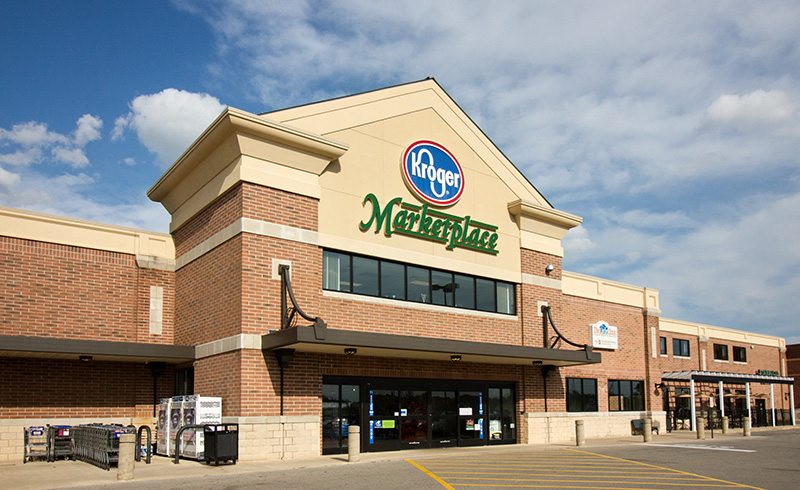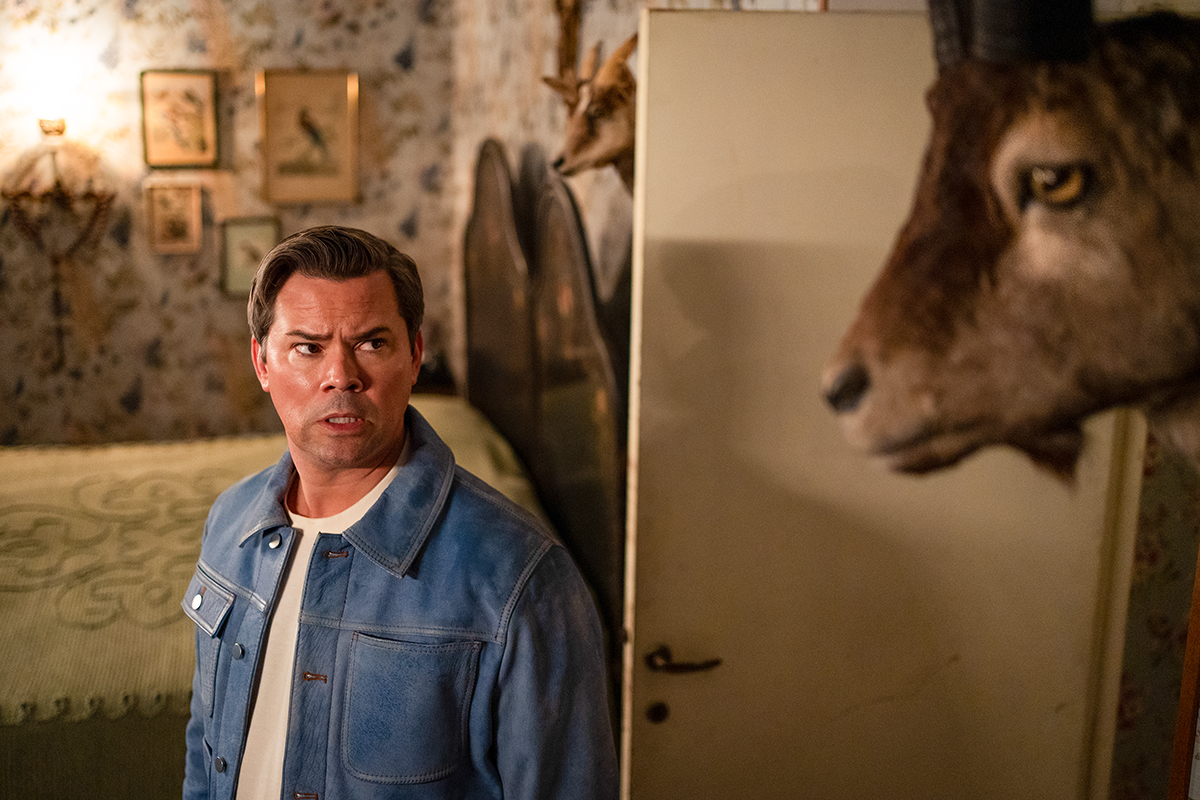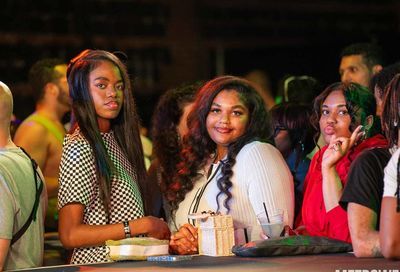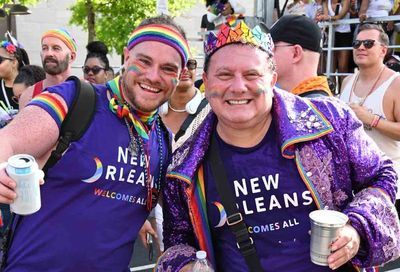‘We Live Here: The Midwest’ Review: Heartland Pride
Hulu Original "We Live Here: The Midwest" opens a door into the lives of queer families toughing it out across the Midwest.

Seemingly none of the families profiled in Melinda Maerker and David Clayton Miller’s compassionate documentary We Live Here: The Midwest have had an easy time adjusting to their present living circumstances.
Some of the LGBTQ+ parents in We Live Here are born and raised Midwesterners who feel they’ve found their slice of heaven on earth in their Iowa town, or on a goat ranch in Kansas. Others are transplants from elsewhere in America, forced to start over under hopeful, blue Nebraska skies.
Several of the families who share their stories in the film were formed around relationships that ignited controversy in their communities. Or led to lost jobs, ended marriages, estranged loved ones.
These couples have faced challenges that they might have faced anywhere, but now, whether they’re living in Iowa, Nebraska, Kansas, Ohio, or Minnesota, they all are committed to nurturing roots in America’s so-called Heartland.
Based on the experiences recounted here, hearts in the Heartland don’t always overflow with kindness for queer and trans people trying to raise kids. Neighbors can conceal harmful intentions behind a pleasant façade, say married Des Moines couple Nia and Katie, who started their large family before Nia transitioned.
“Here in Iowa, there’s something called ‘Iowa Nice,'” Nia notes. “It is really Iowa passive-aggressiveness. No one is ever going to say, ‘I don’t support you,’ to your face. They’re going to be very kind to you, and then they’re gonna have a letter-writing campaign to get you kicked off whatever committee, or whatever thing, behind your back.”
Black gay couple Mario and Monte were kicked out of their church in Denver once their clandestine relationship came to light, but have found welcome in their new home in the Midwest.
Residing among mostly conservative families on an Air Force base outside of Omaha, they live openly and proudly, raising their baby daughter with the involvement of the child’s surrogate mother. Their non-traditional family sticks out, they admit, but still they’ve found community.
The filmmakers don’t depict Mario and Monte’s community, or that of any of the film’s subjects, with great visual or dramatic detail. Beyond static interviews with immediate circles of family, friends, and neighbors, local color consists of stray shots of leafy backyards and quiet city streets.
We meet Nia and Katie’s kids, and a few of Mario and Monte’s fellow airbase families. Goat-raising farmers Courtney and Denise in rural Kansas share screentime with son Marek, who explains how his own search for identity was profoundly influenced by having two queer parents.
The circle of loved ones surrounding partners Jenn and Debb, both of whom are trans women, provides the movie’s most noteworthy tension. Jenn’s teen daughters and ex-wife clearly are still reeling from the pain and shock of a traumatic separation and divorce. As one of Jenn’s daughters insists, a host of lives were upended when Jenn left their mom, then re-introduced herself as a woman they’d never met. Jenn’s new life with Debb in Minneapolis means a new life for all of them.

But whatever adversity they face remains offscreen, or in the past tense. Subjects relay descriptions of challenges conquered, recollections of enemies confronted. The families and their experiences are fascinating, the discussions of gender, marriage, parenting, class, and faith are consistently insightful and authentic.
Yet, the portrait lacks urgency, and the tidy, hour-long structure never evinces the messy emotional pull of real life, or even of We’re Here, the very similar, and infinitely more dynamic drag-themed docuseries on Max.
While that show returns soon for its fourth season of highlighting queer folks who’ve planted their flags in small towns across America, We Live Here: The Midwest further reveals just how vast and varied is the queer experience, from coast to coast and everywhere in between.
We Live Here: The Midwest (★★★☆☆) is available starting Dec. 6 for streaming on Hulu. Visit www.hulu.com.
Support Metro Weekly’s Journalism
These are challenging times for news organizations. And yet it’s crucial we stay active and provide vital resources and information to both our local readers and the world. So won’t you please take a moment and consider supporting Metro Weekly with a membership? For as little as $5 a month, you can help ensure Metro Weekly magazine and MetroWeekly.com remain free, viable resources as we provide the best, most diverse, culturally-resonant LGBTQ coverage in both the D.C. region and around the world. Memberships come with exclusive perks and discounts, your own personal digital delivery of each week’s magazine (and an archive), access to our Member's Lounge when it launches this fall, and exclusive members-only items like Metro Weekly Membership Mugs and Tote Bags! Check out all our membership levels here and please join us today!



























You must be logged in to post a comment.